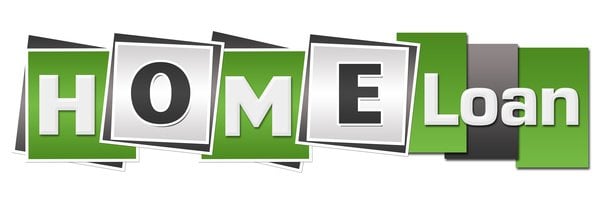Finding the home loan that best fits your needs probably isn’t the same as it is for your brother in-law, your office water cooler buddy, or even the loan originator that your real estate agent recommends. The one your agent recommends is probably worth at least talking to but before you commit to a loan be sure you do some of your own research. While most home loans aren’t customized to the individual, there are categories of loans fitting individual borrowers better than others.

Gather Basic Home Loan Information
The best place to start is with your own finances and circumstances to determine which category you should spend the most time shopping in for the best match to your needs. You can get started by gathering the basic information needed for the preapproval process. First, determine the exact people that will be applying for the loan. Typically, this includes yourself, your spouse, or a co-borrower if you aren’t married to your partner. Using those names and social security numbers, collect this information for each individual:
- All banking, savings, checking, and investment account information.
- Outstanding debt obligations, beginning with credit card, car loan, student loan, child support, and other balances.
- Two years of tax returns, W-2s, and 1099s.
- Salary and employer information.
- Information about how much of a down payment you can make and where the money is coming from. Include but keep separate the funding sources for other expenses such as closing costs, moving expenses, and opening new utility accounts.
All of this information is required but pay particular attention to how much money you are working with for a down payment. This is the beginning point to determine if you will need a low or no down payment loan or a conventional loan. It also helps you begin deciding how much you want to pay in monthly mortgage payments, possibly for the next 15, 20, or 30 years. For instance, if you take out a conventional loan but have less than a 20 percent down payment, you need to be prepared to pay for private mortgage insurance (PMI) until you own 20 percent equity in the home. Or if you’re looking for a zero down payment and qualify for a veteran’s loan, you’ll want to focus your efforts on working with lenders that specialize in these loans.
Types and Explanations of Different Home Loans
With your basic information in hand, you’ll be prepared to consider which loan type(s) are most suitable for you. A mortgage broker can help with this process but you’re best prepared when you have knowledge of what is widely available. Here are the most common loans to consider.
- Fixed rate loan. These are the most common and work in conjunction with other loan types such as VA, FHA, and conventional loans. People prefer these because they offer the lowest amount of risk. The interest rate won’t change over the 15 to 30 years it takes to repay the loan. Each month a portion of the outstanding balance is steadily repaid until you own the home out right. However, there can still be small variations in your monthly payments due to changes in property taxes, homeowner insurance, HOA fees (if applicable), etc. These loans are best for people planning to remain in the home for at least seven years or longer and when interest rates are low as they are now.
- Adjustable rate loans (ARMs) offer lower beginning interest rates than most other loans. That means a lower beginning monthly payment and/or the ability to buy a more expensive home. The interest rate typically remains the same for the first five to ten years but then change (adjust) once a year based on current interest rates. This means your monthly payment could go up in future years. Your interest rate could go down but based on today’s low interest rates that won’t likely happen. These loans are best suited to people that don’t plan to own the home long term. People who want to take advantage of the low initial interest rate but plan to sell before it adjusts upward.
- Federal Housing Administration loans (FHA), require down payments of as little as 3.5 percent. These loans are suitable for people with a small down payment (often first time buyers) but come with conditions such as requiring private mortgage insurance and limited purchase prices that exclude what would be considered a large or luxury home.
- Home buyers that served in the U.S. Military qualify for VA loans requiring zero down and don’t require PMI.
- USDA Rural Development loans are sometime over looked because of their limited application. These are intended for rural areas that are struggling financially. These are available for zero down and even offer discounted interest rates. However, these do require PMI.
- Bridge loans are an option if you're purchasing a home before selling your previous residence. Lenders will wrap your current and new mortgage into one payment. Once your current home is sold, you pay off that mortgage and refinance the mortgage on your new home.
Specific Tips for Finding the Best Home Loan
- Definitely shop around. Today, online mortgage calculators and online application services make comparison shopping quick and easy. There are many websites showing you side-by-side comparisons of what different lenders offer for the most important home features such as monthly payments, fees, and other costs associated with getting a new loan. Find your preferred website or begin with http://www.bankrate.com/calculators or https://www.nerdwallet.com/mortgages/mortgage-rates. Take your best preliminary results from three or more comparisons and then do another comparison among these to find the best of the best.
- Don’t limit yourself to one type of lender such as big banks. Consider other lending sources such as neighborhood banks, savings and loans, credit unions, and online mortgage lenders.
- Once you narrow your preferences down to a few lenders, start digging deeper into other costs that include points and fees. There are many variables with these and most are negotiable. For instance, points are often quoted as a percentage of the loan amount. Ask for these in dollar amounts also. Many fees can be paid in multiple ways such as when the application is submitted, at closing, or wrapped into the loan. The amount of the fees and when they are paid is negotiable. Understand what you are being offered and what your options are.
- Be aware that negotiations can reduce the commission or income of a mortgage broker or loan officer. Your preference is negotiating on a loan where the reduced costs apply to the lender but not your broker. This keeps your broker’s interest aligned with yours.
- The Loan Estimate is given to you within three business days after turning in a mortgage application. It outlines the various terms attached to the loan, including your interest rate, estimated monthly payments, and the cash you need to close. Section C details the costs over which you have the most control. You can comparison-shop for the services listed. Your lender is required to give you a list of approved providers but you can shop outside the list of approved providers and ask the lender to approve your choice.
Please share your mortgage shopping experience with others by leaving a comment below.
 Author bio: Brian Kline has been investing in real estate for more than 35 years and writing about real estate investing for seven years. He also draws upon 35 plus years of business experience including 12 years as a manager at Boeing Aircraft Company. Brian currently lives at Lake Cushman, Washington. A vacation destination, a few short miles from a national forest. In the Olympic Mountains with the Pacific Ocean a couple of miles in the opposite direction.
Author bio: Brian Kline has been investing in real estate for more than 35 years and writing about real estate investing for seven years. He also draws upon 35 plus years of business experience including 12 years as a manager at Boeing Aircraft Company. Brian currently lives at Lake Cushman, Washington. A vacation destination, a few short miles from a national forest. In the Olympic Mountains with the Pacific Ocean a couple of miles in the opposite direction.
Brian Kline has been investing in real estate for more than 30 years and writing about real estate investing for seven years with articles listed on Yahoo Finance, Benzinga, and uRBN. Brian is a regular contributor at Realty Biz News
Latest posts by Brian Kline
(see all)
 Author bio: Brian Kline has been investing in real estate for more than 35 years and writing about real estate investing for seven years. He also draws upon 35 plus years of business experience including 12 years as a manager at Boeing Aircraft Company. Brian currently lives at Lake Cushman, Washington. A vacation destination, a few short miles from a national forest. In the Olympic Mountains with the Pacific Ocean a couple of miles in the opposite direction.
Author bio: Brian Kline has been investing in real estate for more than 35 years and writing about real estate investing for seven years. He also draws upon 35 plus years of business experience including 12 years as a manager at Boeing Aircraft Company. Brian currently lives at Lake Cushman, Washington. A vacation destination, a few short miles from a national forest. In the Olympic Mountains with the Pacific Ocean a couple of miles in the opposite direction.
One thing to add about bridge loans is that the borrower is not required to prove/verify they are able to repay the loan with their income. Those without sufficient income can still qualify for a bridge loan even if the property is owner occupied. Once the original property is sold the loan is paid off.
Jeff,
Thanks for that bonus point.
Brian